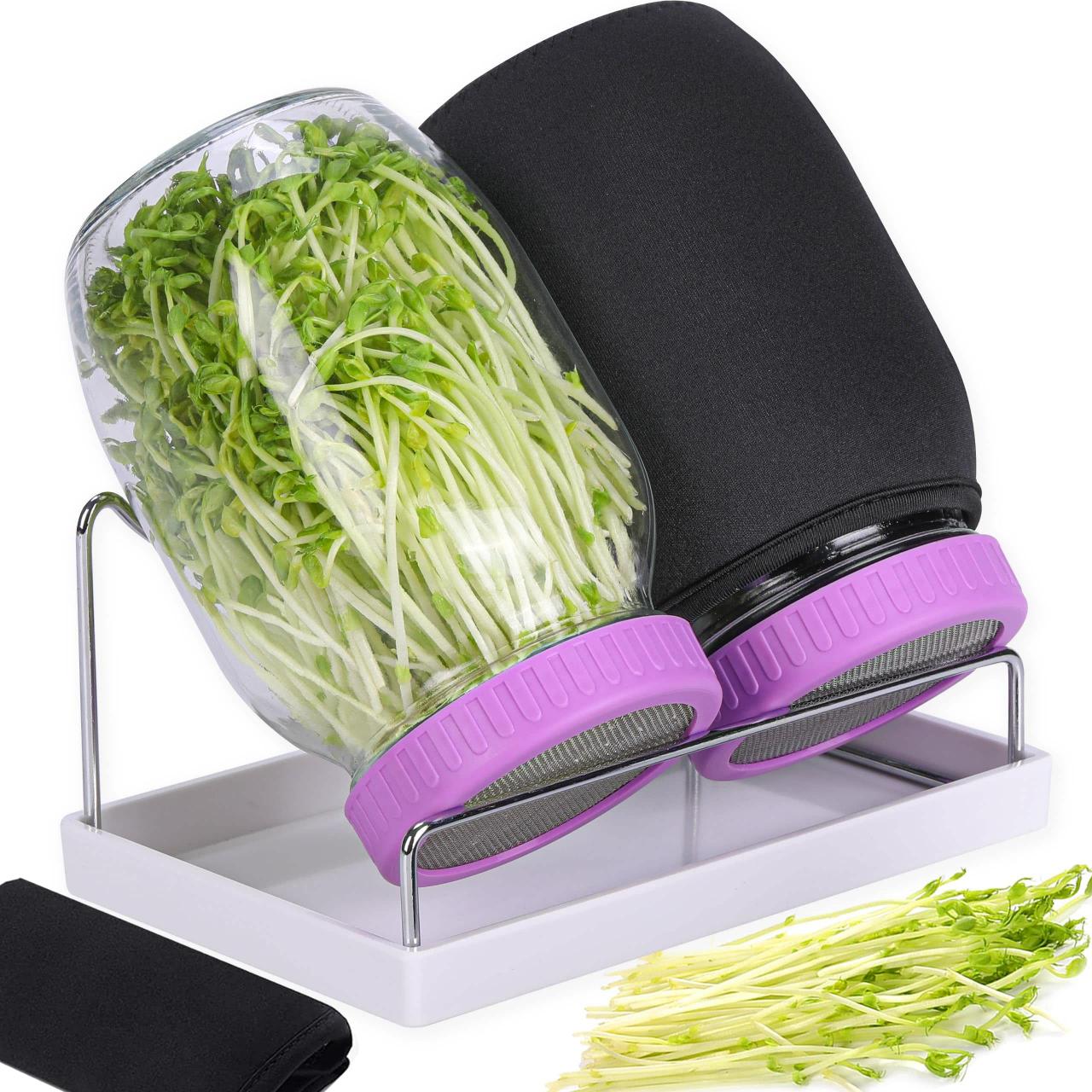When it comes to growing your own sprouts, a sprouting kit can be a convenient and efficient way to do so. But before you make a purchase, it’s essential to consider both the benefits and drawbacks of these kits.
Pros of Sprouting Kits
One of the significant advantages of sprouting kits is their ease of use. Many kits, such as the HAMAMA Grow Kit, are designed to be user-friendly and require minimal maintenance. They often come with features like automated watering systems and easy clean-up, making the process of growing sprouts relatively hassle-free.
Another benefit of sprouting kits is their ability to provide a controlled environment for your sprouts. Kits like the Sprouts Growing Kit with a Wide Mouth Mason Jar come with blackout sleeves, allowing you to regulate the amount of light your sprouts receive, which can be beneficial for different types of sprouts[EOUOBOMO].

In addition to their convenience and control, sprouting kits can also be a cost-effective way to grow your own sprouts. While the initial investment in a kit may seem substantial, it can be more economical in the long run than constantly buying sprouts from a store.
Cons of Sprouting Kits
One of the primary drawbacks of sprouting kits is the need for regular maintenance. While some kits are designed to be low-maintenance, they still require daily attention to ensure the sprouts are watered and healthy. This can be a challenge for those with busy schedules or who tend to forget daily tasks.
Another potential con of sprouting kits is the cost of replacement parts. Some kits, like the HAMAMA Grow Kit, require the purchase of new seed quilts periodically, which can add to the overall expense of using the kit.
Finally, sprouting kits may not be suitable for everyone, particularly those with digestive issues. Sprouts are high in fiber, which can be beneficial for some but difficult for others to digest.